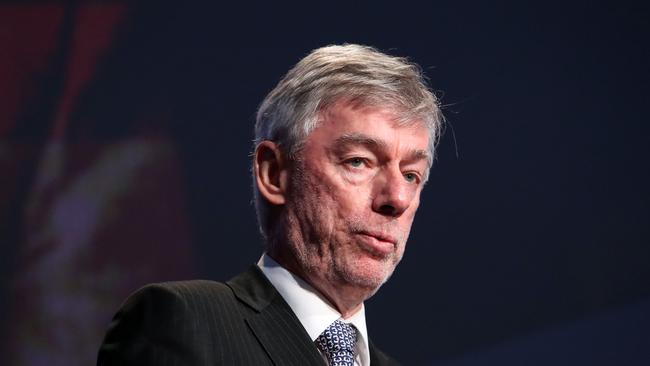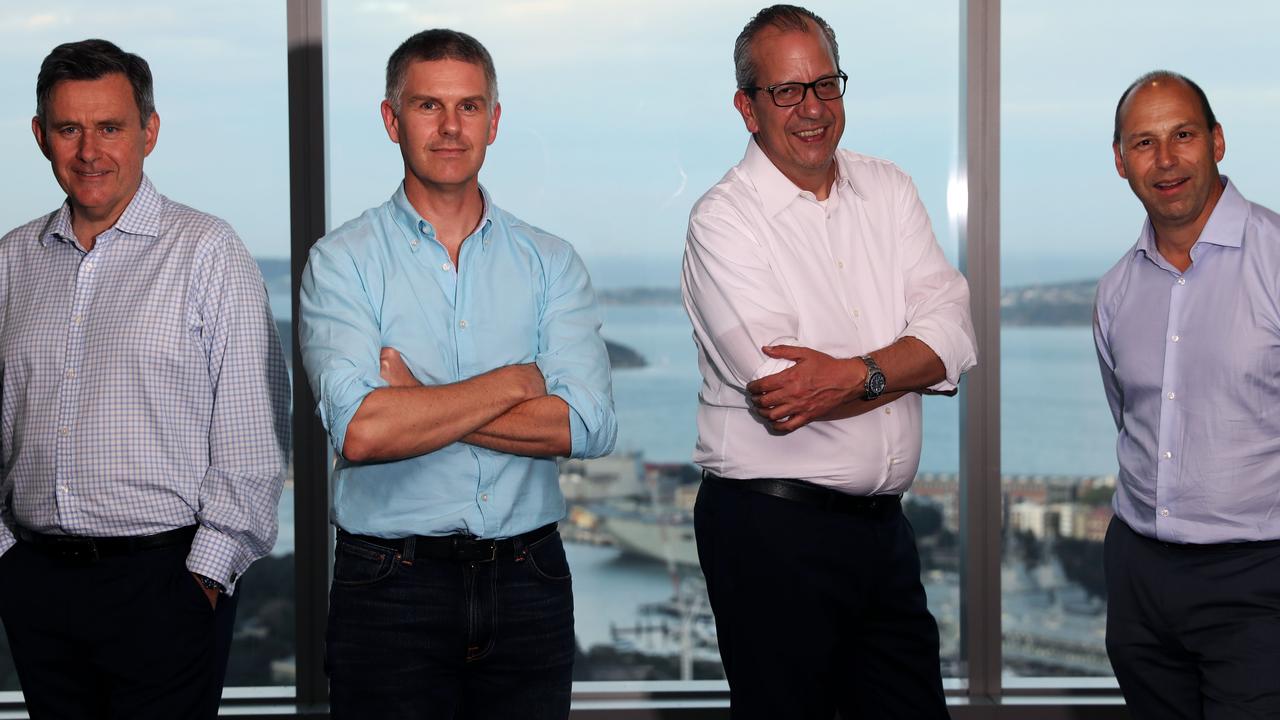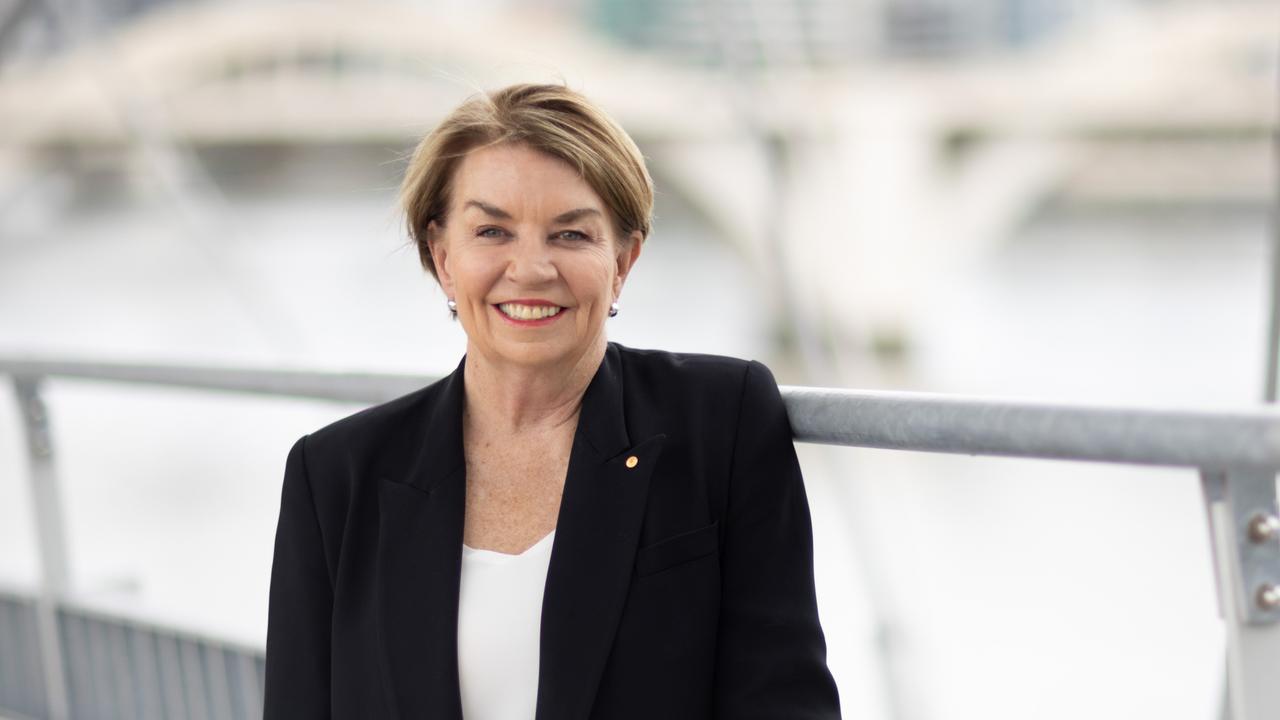Brian Hartzer hangs on as Westpac cuts bonus
Westpac chairman Lindsay Maxsted’s besieged board says it hasn’t found cause for dismissal of the bank’s chief executive.

Westpac chairman Lindsay Maxsted’s besieged board says it hasn’t found cause for dismissal of chief executive Brian Hartzer, although a lot will depend on meetings over the next two weeks to gauge whether he has key investor support.
After releasing a response plan to damning legal action by the financial crimes regulator on Wednesday, Mr Maxsted told The Australian Mr Hartzer had the support of the board and hadn’t offered to resign in light of the allegations.
Westpac’s response includes cutting or scrapping bonus payments to executives, increasing staff in its financial crimes unit by a further 200 people and setting up a board financial crime sub-committee to deal with the issues.
The bank is also ploughing funds into child protection agencies and has pledged to end its controversial LitePay payment platform and invest $25m to bolster cross-border and industry data-sharing.
Austrac started action in the Federal Court over 23 million alleged breaches of the law, including fund transfers that facilitated money laundering and child exploitation.
The allegations included not properly monitoring international fund transfers and shocking claims that the bank failed to properly assess 12 customers with links to child pornography and sexual exploitation in The Philippines and Southeast Asia.
“All of us are here to act in the best interests of the company … we haven’t seen anything that is case for (Mr Hartzer’s) dismissal,” Mr Maxsted said in an interview.
He qualified that by saying he was yet to meet with some large shareholders and that could change “if there isn’t investor support” for Mr Hartzer.
Mr Maxsted said Westpac’s accountability review — which will ramp up after the appointment of independent experts — would take months rather than weeks.
“We think these sorts of things take three or four months, not three or four weeks,” he added.
Sources said Westpac representatives were meeting with proxy adviser ISS on Monday and that Mr Hartzer had spoken to Austrac chief Nicole Rose about the statement of claim since Wednesday.
The board is also understood to have started trawling through staff emails relating to some of the failings identified by Austrac.
Sunday’s announcement marks Westpac’s fourth statement since Austrac launched the landmark action and the second official response by the bank’s board.
The announcement said accountability would be felt through partial or full bonus cuts for the entire Westpac executive team.
But Mr Maxsted shrugged off suggestions the board should take similar action to Commonwealth Bank — after it was embroiled in its own Austrac scandal — and award zero bonuses to its executives.
He noted the board “just don’t know enough” without the sweeping review to pinpoint pay consequences.
“We accept that we have fallen short of both our own and regulators’ standards and are determined to get all the facts and assess accountability,” Mr Maxsted said in the statement.
“In the interim, the board has determined that either all or part of the grant of the 2019 short-term variable reward will be withheld for the full executive team and several members of the general management team subject to the assessment of accountability.”
Mr Hartzer recorded an internal video for staff on Sunday where he admitted it had been “very clear there were gaps in our checks and balances around these issues”. “As CEO I’m ultimately responsible in the chain of command for everything that happens in this company.
“So I’m absolutely committed to getting to the bottom of this,” he said in the video.
Westpac on Sunday admitted that it took 18 months after receiving new Austrac guidelines for “key indicators” on the purchase of child exploitation material, through fund transfers, to implement the change to its systems across LitePay payments to The Philippines.
Mr Maxsted said Westpac disputed that its executives were indifferent, as alleged by Austrac, but said the handling of those guidelines may have triggered that concern.
“If that is the area … what we do know is that management (of that area) is some way down,” he added.
More broadly, though, Mr Maxsted hit back at Austrac’s claim that management were indifferent to the compliance shortcomings and that there was “inadequate oversight” by the board.
“Based on its current understanding, the board does not believe that there has been any indifference by any member of the executive team, including the CEO, but accepts that Westpac has fallen short of its own and regulatory expectations and that a detailed review is required to investigate the facts alleged by Austrac,” the statement said.
The Austrac action has raised the ire of some shareholders and has analysts expecting fines of at least $700m, with some pencilling in more than $1bn.
The Westpac response plan comes as the bank seeks to head off investor unrest ahead of its annual general meeting.
Mr Maxsted said a second strike at Westpac’s December 12 AGM was “not a fait accompli”, as the board had listened to feedback following last year’s large vote against the pay report.
A second strike allows investors to vote on a motion to spill the entire board.
Mr Maxsted has started meetings with investors and said there would be “many, many more”.
“We are hopeful they see it how I see it,” he added.
The response released by Westpac included allocating funds to child protection measures.
Among those, the bank said it would match International Justice Mission’s current level of funding, investing $18m over three years to tackle online sexual exploitation of children in The Philippines.
It will also match government funding for the SaferKidsPH program of $6m over six years and set aside $10m over three years to establish a panel to support child exploitation prevention.
Mr Maxsted also noted that, while under constant review, Westpac planned to forge ahead with its $500m retail shareholder capital raising, despite the Austrac saga.
“We clearly have to assess that. We are doing that daily,” he said.
Westpac said it had already completed actions to improve anti-money laundering and counter-terrorism financing compliance.
That included correcting an international funds transfer issue and consolidating different financial crime systems into a single technology system.
The bank has doubled resourcing in financial crime to around 750 people and planned in 2020 to add a further 200 positions.
Westpac has developed a Financial Crime Strategic Plan and has made changes — including several external hires — to the leadership of the bank’s risk and financial crime areas.



